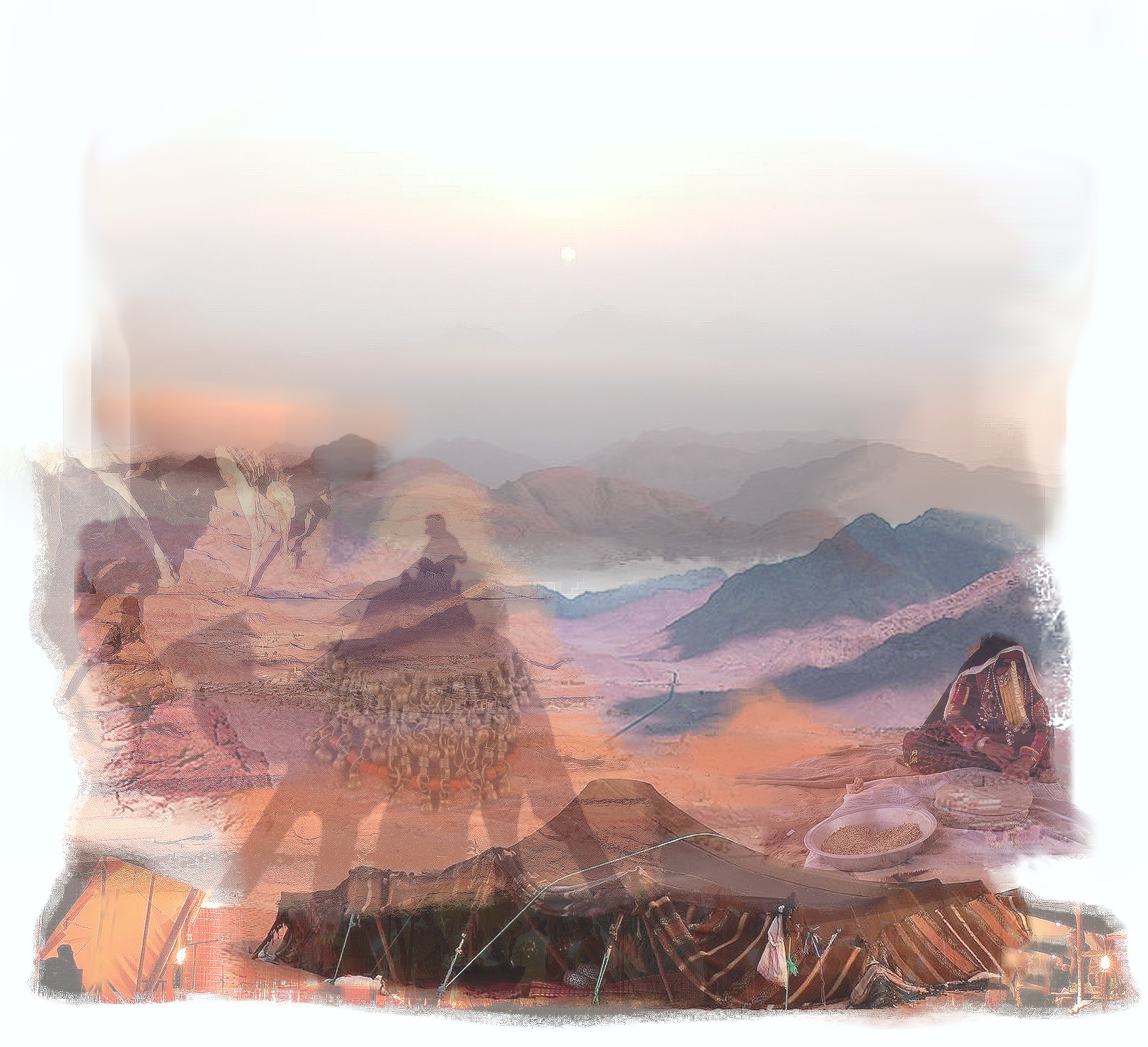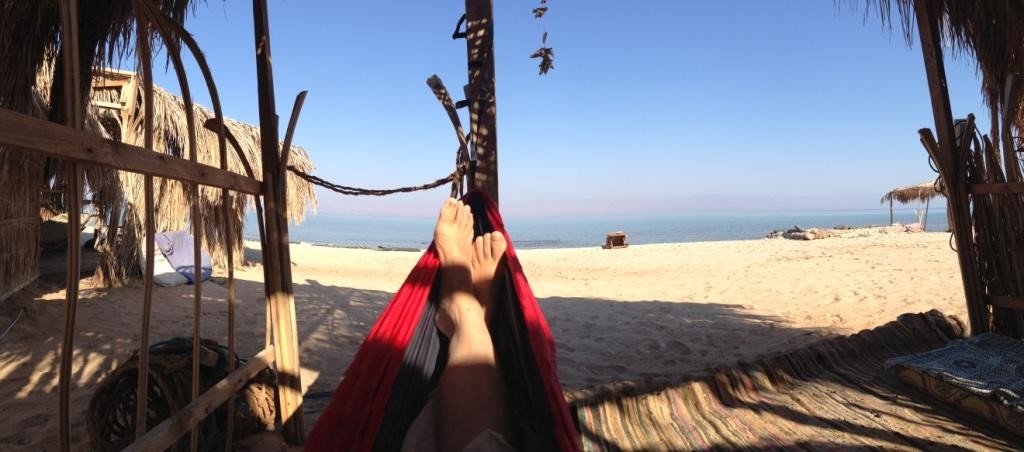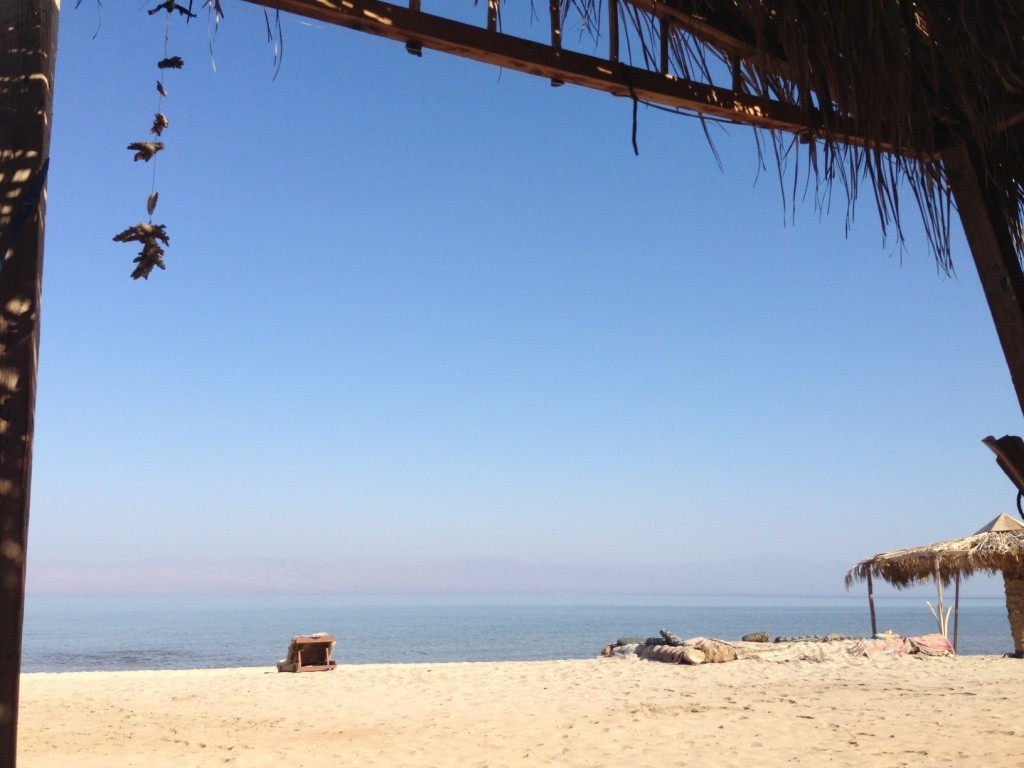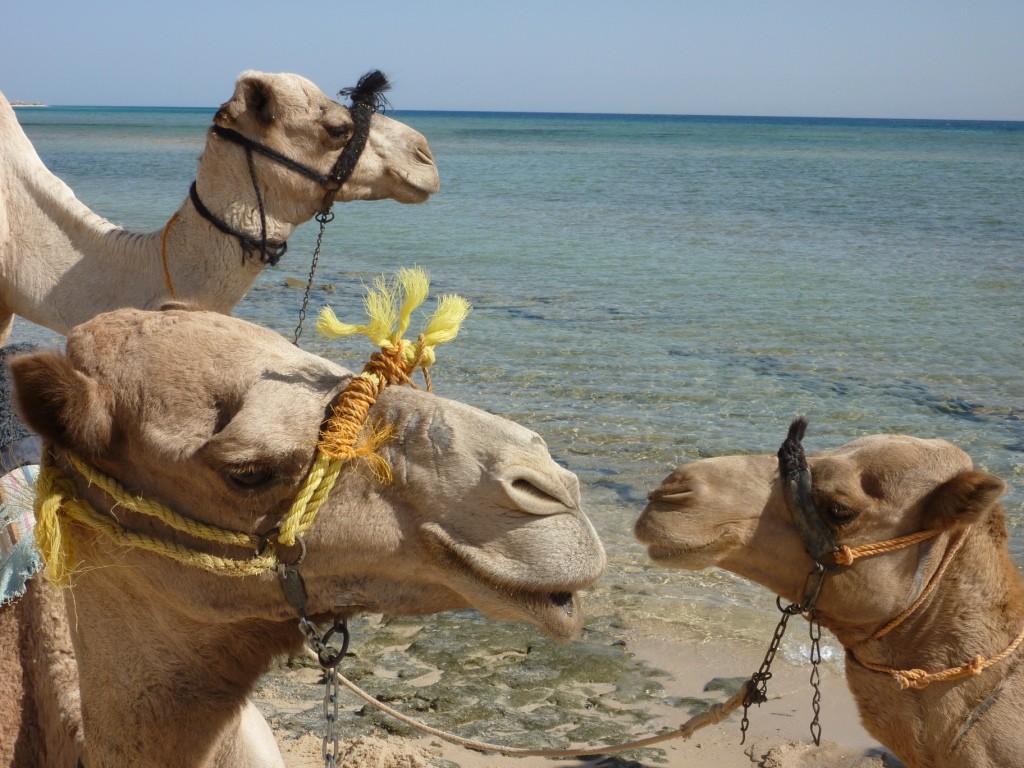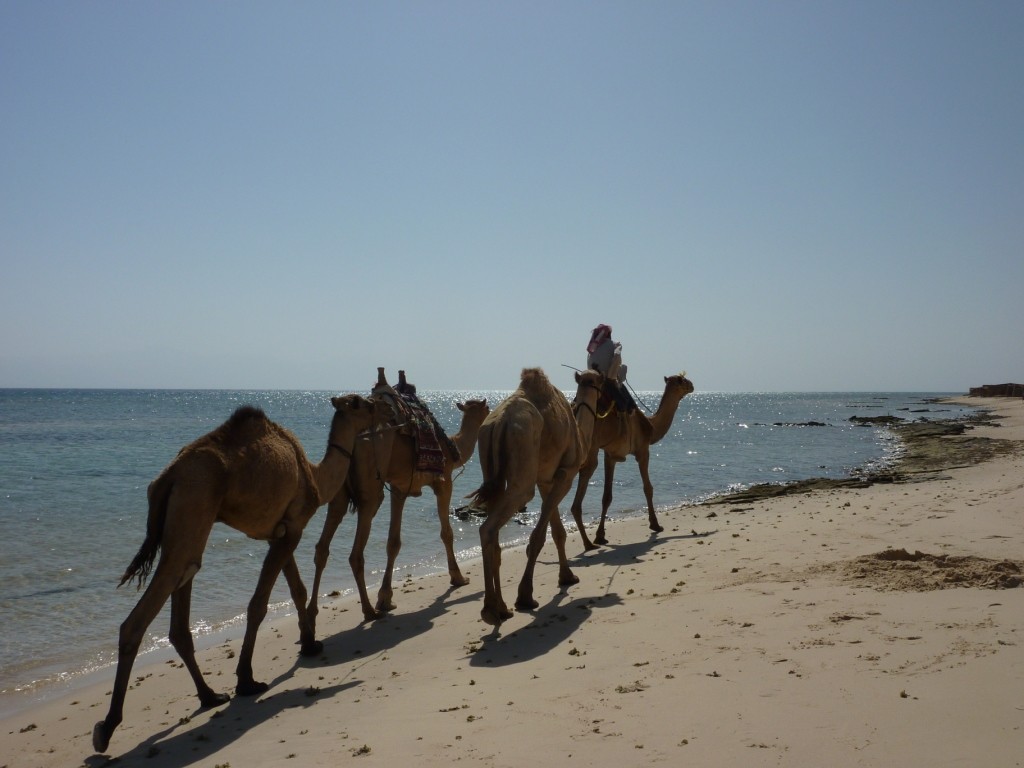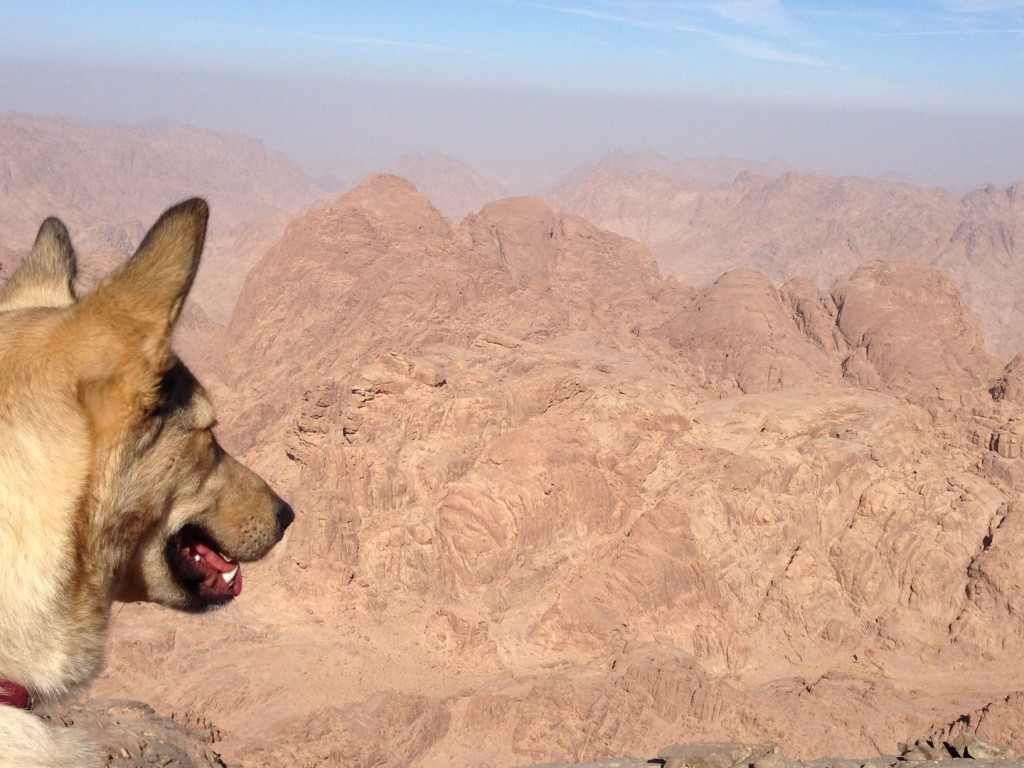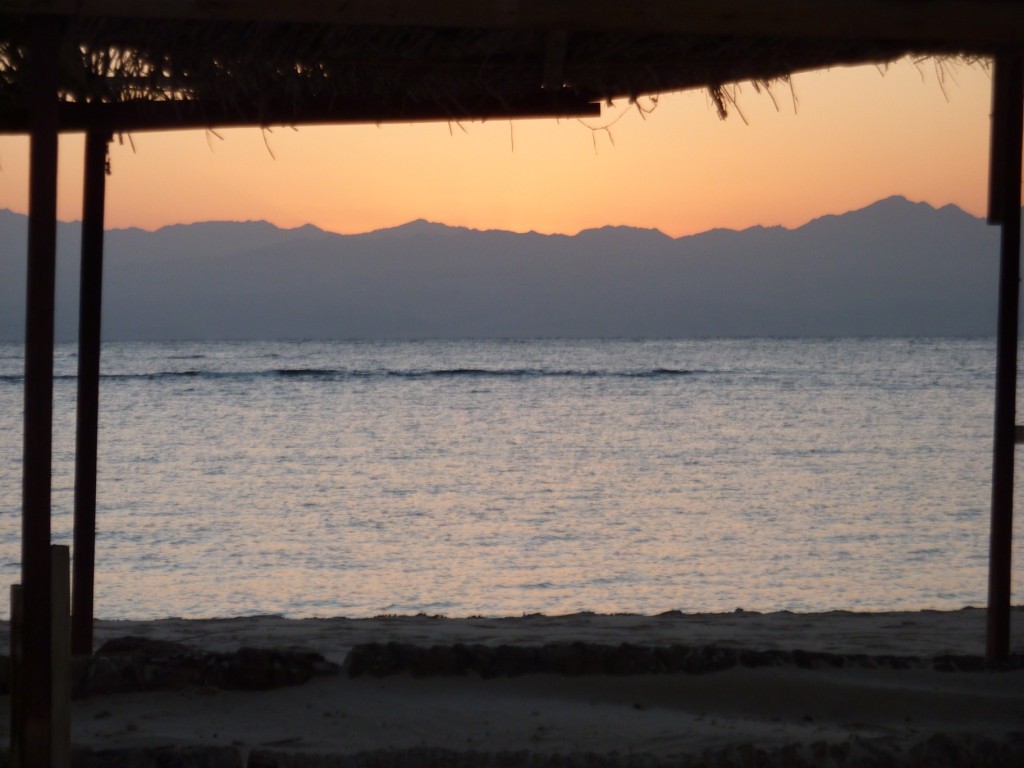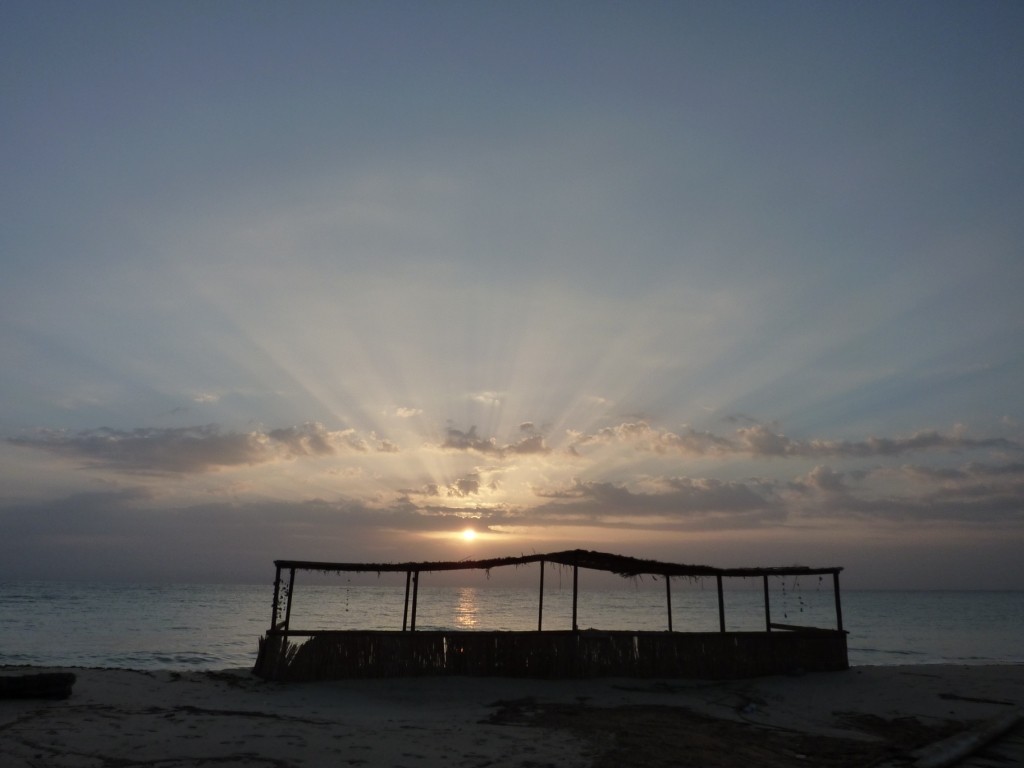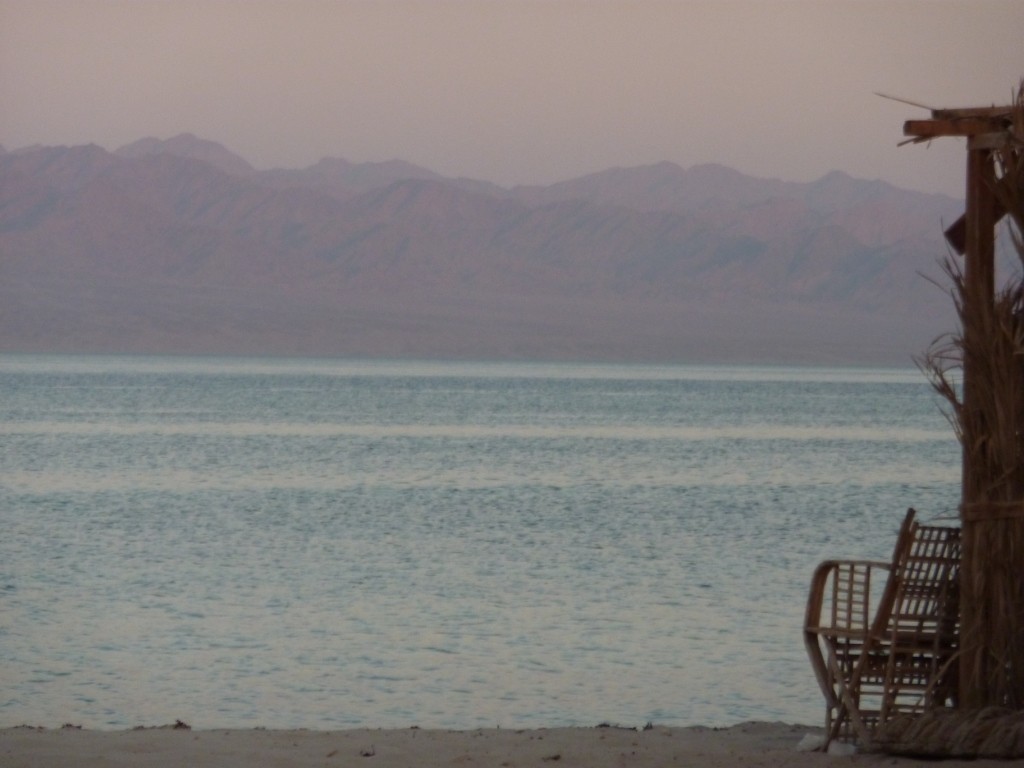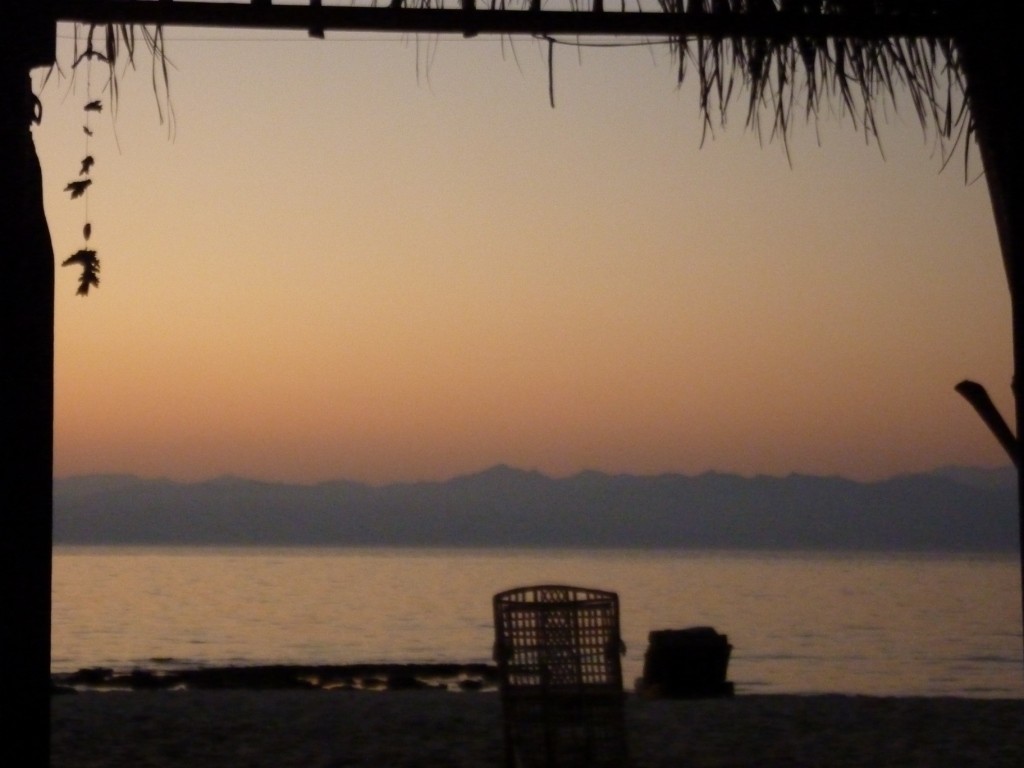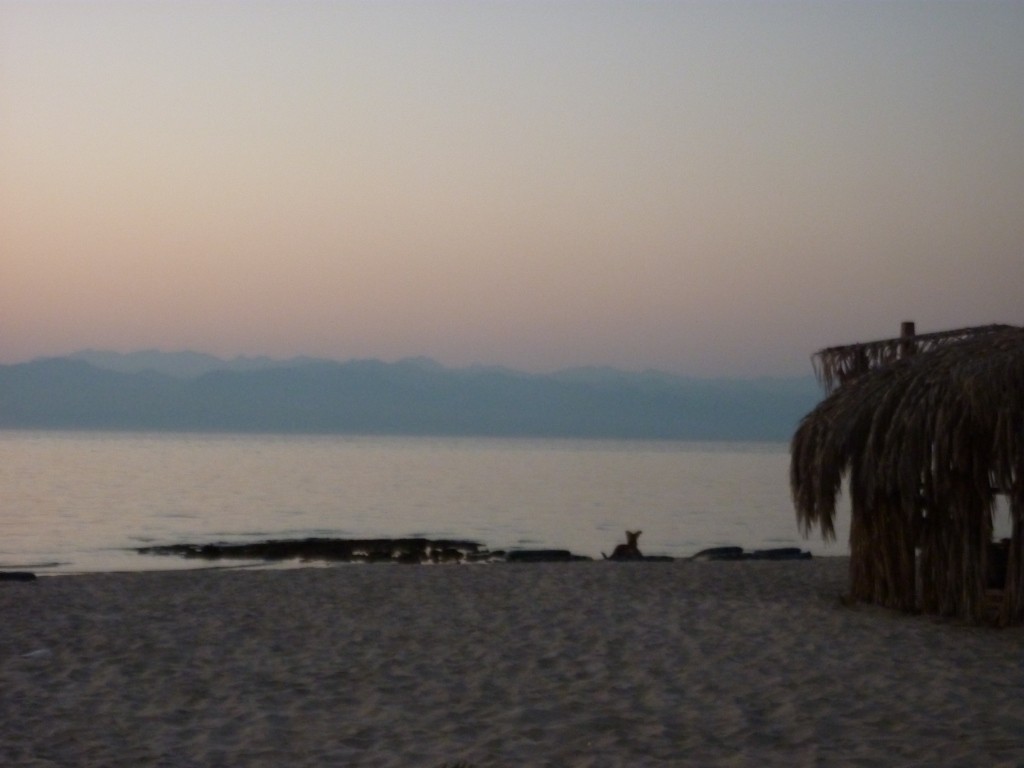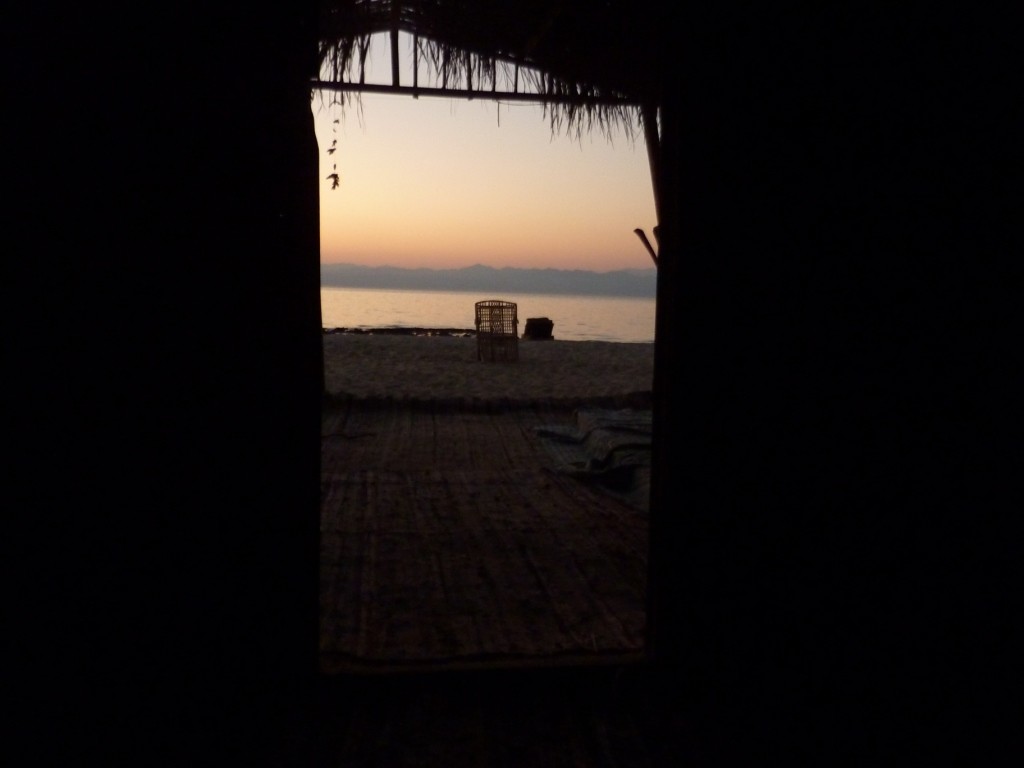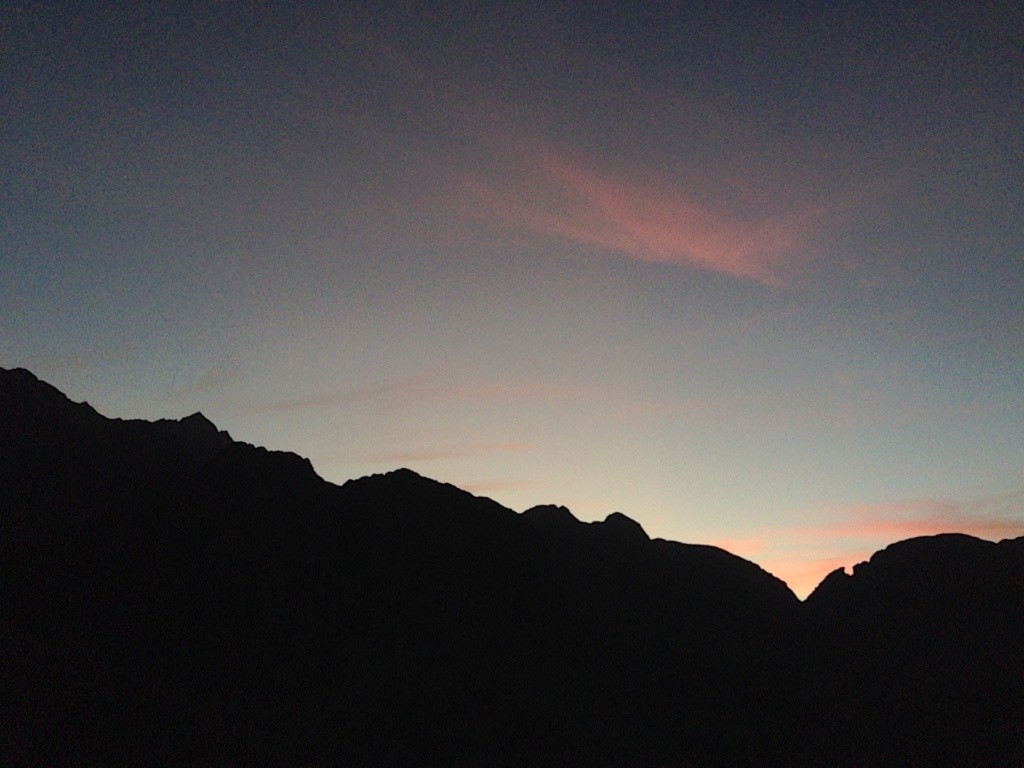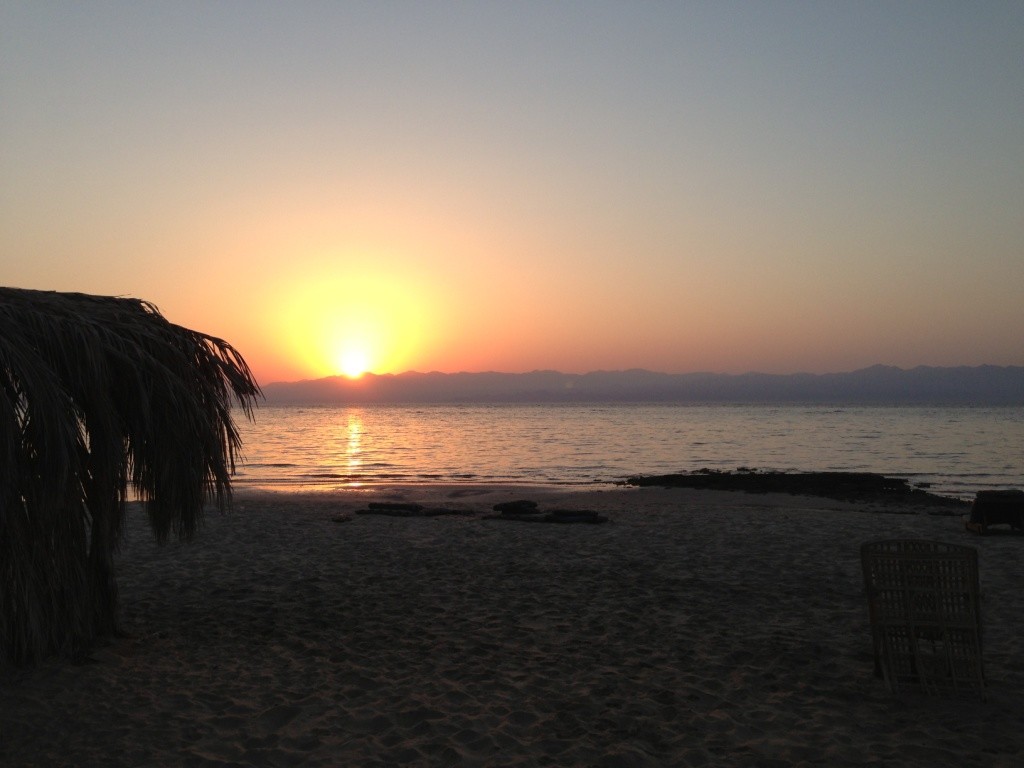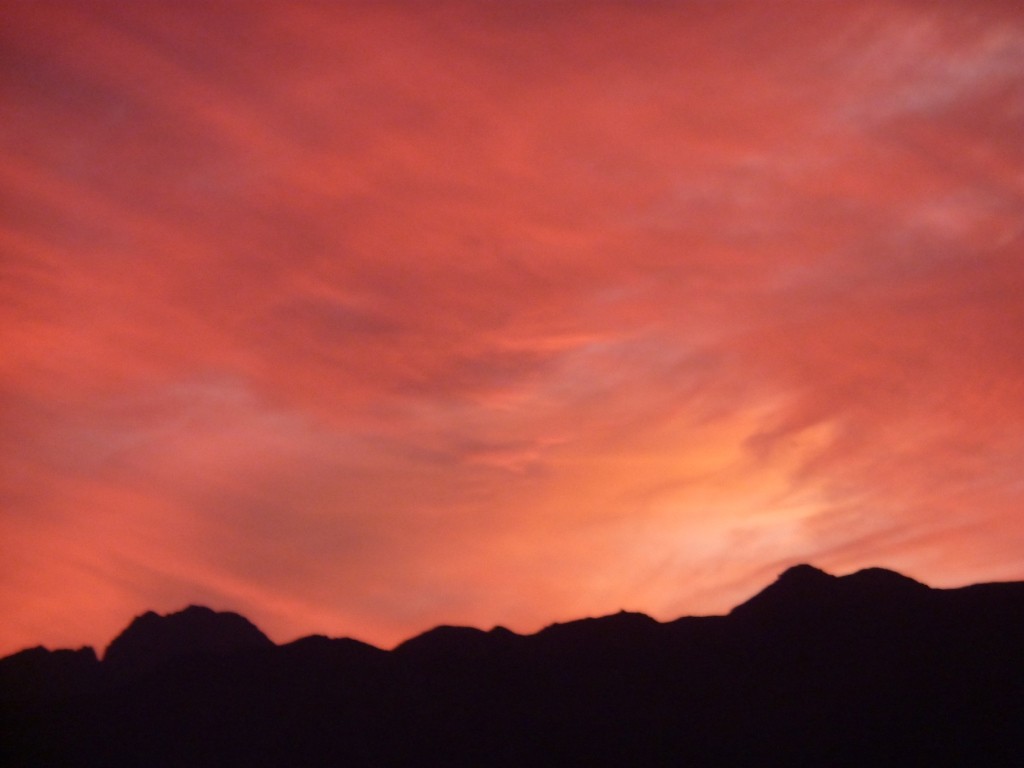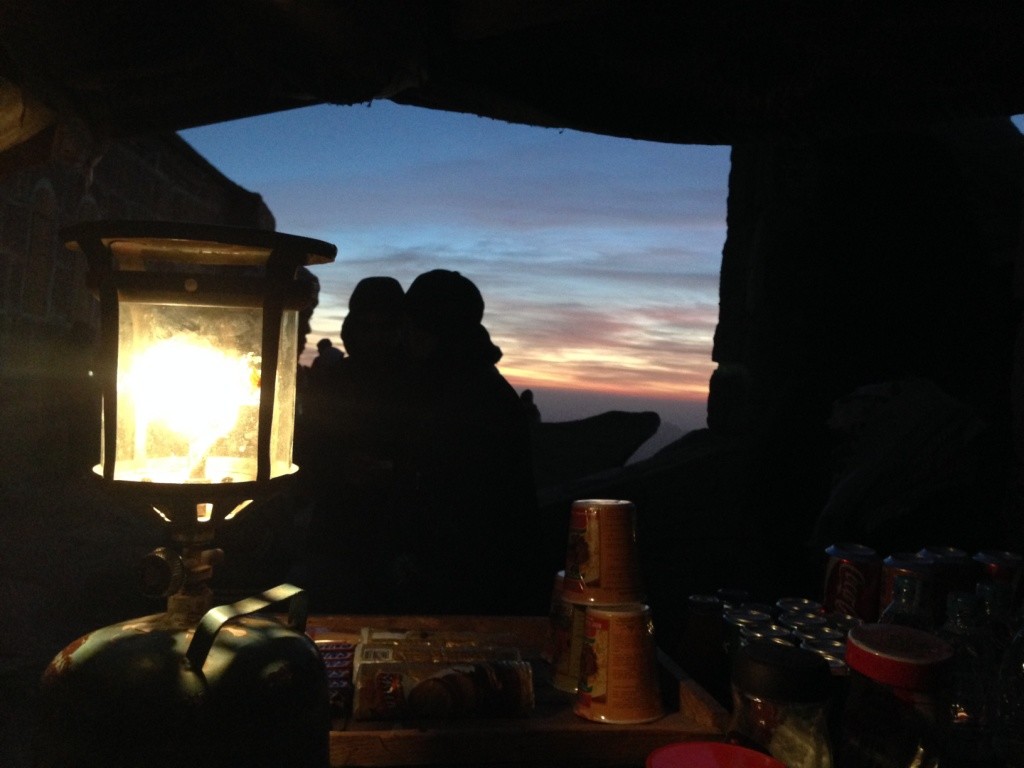(writing sample written for Egypt Today in 1998)
This is a love story. A classic, great love story. About a land, a landscape and a people who live there. A story filled with romance and depths and depths of silence. The silence that only the desert offers. And a story to be told and understood on many levels. A modern morality tale, taking place in a spiritual homeland. A story to be heard by those who can hear; words to be understood by those who can understand. And of course, things to be seen only by those who see deeply.
And the name of the place is Sinai.
In 1930, it was written: “The Sinai Peninsula, a desolate region of insignificant size, has for its area surrounded itself with a halo of more romance, legend and history than any other part of the globe.” More wars have been fought here over the centuries than anywhere else in the world. But never have the foot-soldiers, the centurions, Crusaders or Desert Rats cared for the place itself – no, that was never the point. The strategic importance of this small peninsula which joins East and West, rifted even in nature by the Great African Rift Valley, was always the only raison d’etre for battles. And while they took place, the semi-nomadic inhabitants, the Bedouin, formed their own strategy: “When war breaks out, take to the mountains with the camels.”
Let me, in these random wanderings, try to give you a sample of the mystery that is – for many – Sinai.
June, 1998
I’d slept the night alone in the wadi. I’d walked there quietly the evening before, well lit by the Moon, ancient goddess of the place, whose light – unlike the Sun’s whose glare sets up defences – somehow allows you to free your soul. You relax into the moonlight, and trusting becomes easier.
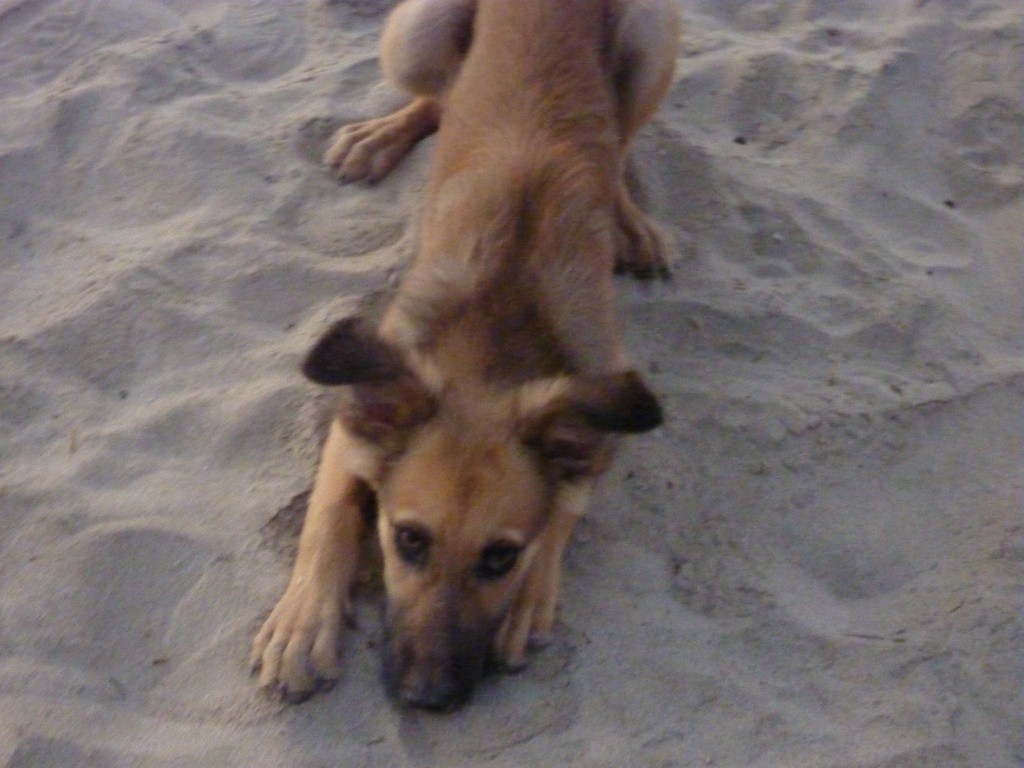
In the morning I woke, gave water by hand to a dog which had come in the night to guard me, and then went about all the daily minutiae. I put the small polythene bag protecting my Ladyshaver on the ground next to me and started doing my legs. A sudden gust of wind took the small bag and wafted it above my head, I grabbed for it, missed and it went ahead of me, teasing its way over the rich, red sand before gaining height to breeze above my head. I ran after it, jumping, but of course it defied me and bounced up higher before disappearing tantalisingly over the mountain ridges of the wadi. Frustrated, I returned to my legs. I don’t know about you, but I’m not good at losing things or having them stolen. Even by the wind.
An hour later, whilst packing to leave (the sun now so high there was no shade from overhanging ridges), three large, black crows flew over, almost starring in a Vincent Van Gogh painting. Three crows. Maybe there’s significance in that, who knows, but certainly there was nothing ambiguous about what the third crow was carrying in its beak. My small polythene bag, so rudely snatched by the wind. And lo, as I watched the third crow fly over my head, it read my mind because it dropped the bag for me so that it started to float down into my open hands. And lo, just as I was thinking how wonderful Life is, you don’t have to rush around looking for things because God’s bestowing gifts on us all the time, all you have to do is wait patiently for Nature to bless you, just as I was thinking all this, the wind snipped through my thoughts to catch the bag a moment before I did, and whisk it off over the other mountain ridge.
Well, I’m stubborn and I don’t give up easily, so I started climbing the mountain from all aspects, but no sign did I have of the bag. Chastened, I had to accept the loss, yet again – and come to terms with this lesson that things do not always fall into one’s hands if one waits patiently. Sometimes one has to be just that little bit ahead of the game and sometimes you just have to accept your limitations. I don’t like these lessons, they take one to negative energy and I prefer to choose, as a spiritual necessity, to be optimistic. But now, sadly, I had to admit defeat.
A month or two went by and I travelled to many places and slept in other wadis. One of the most beautiful things about living close to Nature is that you find yourself naturally moving on to find other places once the regular places start to become routine or habit-forming. Life should, I think, remain fresh. Similarly, when you walk long distances in the desert, you understand – like athletes addicted to training – that the body is made to be used in this way and it becomes hooked on movement and the sheer joy of moving on. The sheer delight in keeping the machine functioning according to its original design. Perhaps Man is still, in his essential nature, a roaming hunter and this movement of walking day after day, like quiet Bedouin with their herds, satisfies in me some deep primeval need.
I returned one afternoon from these travels to that same wadi. As I put my sleeping bag on the ground, I saw that at exactly the centre of my small area for sleeping, sat a small, polythene bag and it was mine. The labels were the same, the size was the same, only the colour – then transparent and now red with much dust – had changed.
You begin, I hope, to get the picture of what the desert is about. Why desert explorers are in love with its silence, its pristine nature, its vast open wildness and its closeness to natural laws. And why people like me, environmentalists and nature-lovers, feel so strongly in these days of modern development and so-called “progress” that there is a growing need to protect our natural heritage and all those exquisitely beautiful places which are so beautiful because they are still unharmed by development.
This is not a war being fought only in Sinai, of course, it is a campaign across the world – Chernobyl and Rio, Save the Whale and the worldwide ban on ivory, have all been landmark battles. Moreover, the claims of poverty and over-population justifiably require solutions; but the question remains: if we allow deserts such as Sinai to be turned into extensions of major cities such as Cairo (as just one example of the worldwide trend), is there a price to be paid? And if so, by whom? In the opinion of many, it is a high price paid by all of us.
Angela Godfrey-Goldstein
Illustration: Claire Palmer

